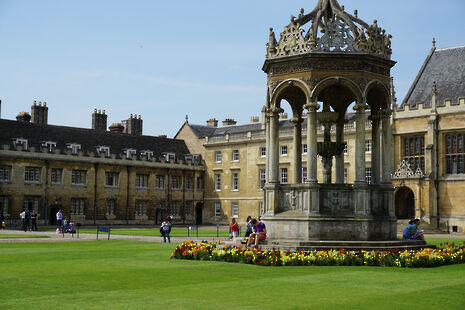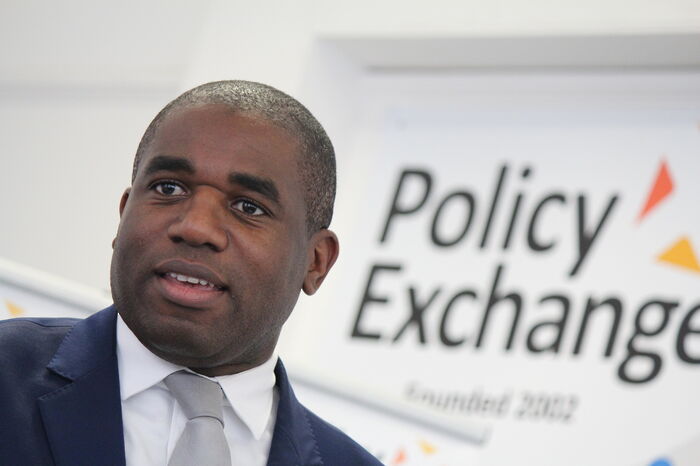Cambridge traditions are by no means open to everyone
Galaxy Henry counters the claim that Cambridge’s traditions are open to everyone, and looks at those whom they leave behind

For as long as quirky tradition is prized above all sense and sensibility, Cambridge will remain one of the UK’s most socially exclusive universities. Tradition has become the new form of social oppression, a code-word employed by the privileged to justify their excessive displays of decadence, and to mask their complete disregard for those less fortunate. The importance placed on tradition in Cambridge relies on the antiquity of these socially divisive practices to coerce us into acquiescence, and to encourage conformist behaviours.
If studying at Cambridge is the only aspect of your existence that makes you prone to social prejudice, then still please understand that it is not your place to decide what is, and what is not, socially inclusive. The fact that having access to the best academics, the best educational resources, and the best prospects can somehow be depicted as a social disadvantage is beyond baffling, and comes from a place of pure privilege.
"For as long as quirky tradition is prized above all sense and sensibility, Cambridge will remain one of the UK’s most socially exclusive universities"
What is infuriating about the prevailing social inequality at this university is that it is largely perpetuated from within the student body. The exclusive nature of Cambridge tradition is far from a myth, and for every state school student who manages to transcend the class barrier by taking part in so-called bonding activities – which do little more than prove that, in order to be socially mobile, one has to buy into the culture of the dominant class – there are countless others who are unable to do the same for various socio-economic and moral reasons. As students, we all know that Cambridge is weird, and that the language, the gowns and the formal halls are all very divorced from reality. Under no circumstances do we need a white male to ‘explain’ this to us. Yet, it is often these same culprits who are given the power to dictate the narrative, to define what counts as socially acceptable, and to ensure, by means of their insistence on maintaining and defending tradition, that nothing will ever change.
Nothing can prepare the average person for the money-fuelled madness they will experience at Cambridge. Whilst an uneventful gap year may give you ample time to mull over the disadvantages of holding a place, for many this is not even an option. At the age of eighteen, some students may already be facing financial pressures, and may therefore feel the need to go to university as soon as possible so as to access their student loans and provide a source of tax-free income for their families and for themselves. This also means that, when at Cambridge, they cannot afford to throw money away on Union membership, May Balls, and ‘wavey garms’ for the latest Arcsoc event. And although it truly is heart-warming to be made aware that there are certain people amongst us who have managed to slip seamlessly into the whirlwind that is Cambridge life, we cannot ignore the plights of those whose existence here continues to be a daily struggle.
Let it also be said, that white men have absolutely zero right to decide whether histories of oppression affecting women and people of colour are outdated or not. To deem exclusive Cambridge traditions as merely remnants of an unfortunate past is to imply that the specific conditions that facilitated the inequalities of yesteryear no longer play a significant role in student life. Repeatedly, one finds oneself confronted with someone whose self-conscious desire to ignore the persistence of social inequalities, which are deeply rooted in the university’s history, is simply unbearable. Why is it that instead of seeking to put an end to discrimination, we often feel the need to either deny it, or justify its existence? On what planet is it logical to counteract concerns that women are excluded from certain spaces within the university with the assertion that nineteenth century Catholics and nonconformists fell victim to the same fate?
Often, members of minority groups are accused of ‘playing the victim’ when simply highlighting the oppressions they face, and in Cambridge, students from modest backgrounds are often condemned for not being grateful for having received access to an elitist institution which systematically undermines their cultural identity. Attending a state school does not automatically place one in a position to give Cambridge the ‘all clear’ when it comes to social accessibility. Everyone has a different story, and nobody should be made to feel as though theirs is invalid.
One thing is certain, it is indeed pointless to waste time stewing in guilt when active steps can be taken to unravel the web of social inequality which acts as a safety blanket for many privileged students. Nevertheless, it is unsurprising that those upholding oppressive social structures with their careless behaviour and their failure to use public platforms to advocate for the implementation of equality are the same people who advise that we direct our anger towards what can often become an abstract target – the government – when our efforts would be put to much better use if they were focused on challenging the micro-level oppressions we face. As it stands, Cambridge is not the most socially inclusive university in the UK. However, with drastic change, there may come a time when that sensationalist headline actually rings true
 Interviews / You don’t need to peak at Cambridge, says Robin Harding31 December 2025
Interviews / You don’t need to peak at Cambridge, says Robin Harding31 December 2025 Comment / What happened to men at Cambridge?31 December 2025
Comment / What happened to men at Cambridge?31 December 2025 News / Unions protest handling of redundancies at Epidemiology Unit30 December 2025
News / Unions protest handling of redundancies at Epidemiology Unit30 December 2025 Features / ‘Treated like we’re incompetent’: ents officers on college micromanagement30 December 2025
Features / ‘Treated like we’re incompetent’: ents officers on college micromanagement30 December 2025 News / Varsity’s biggest stories of 202531 December 2025
News / Varsity’s biggest stories of 202531 December 2025










